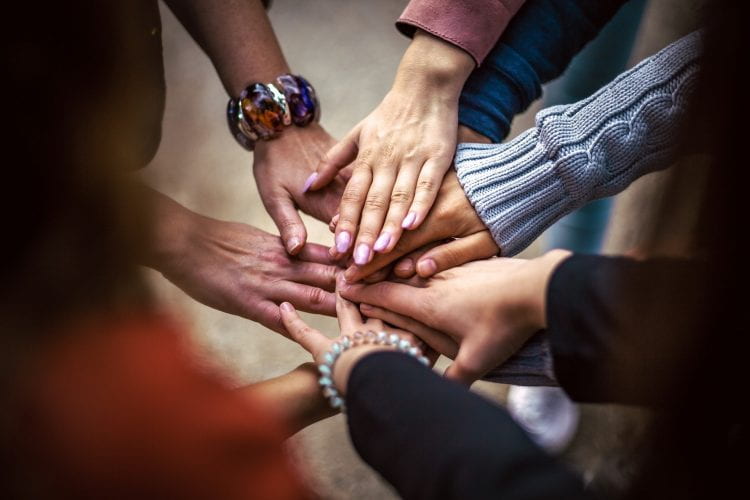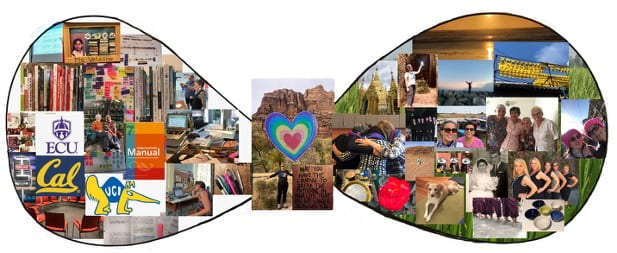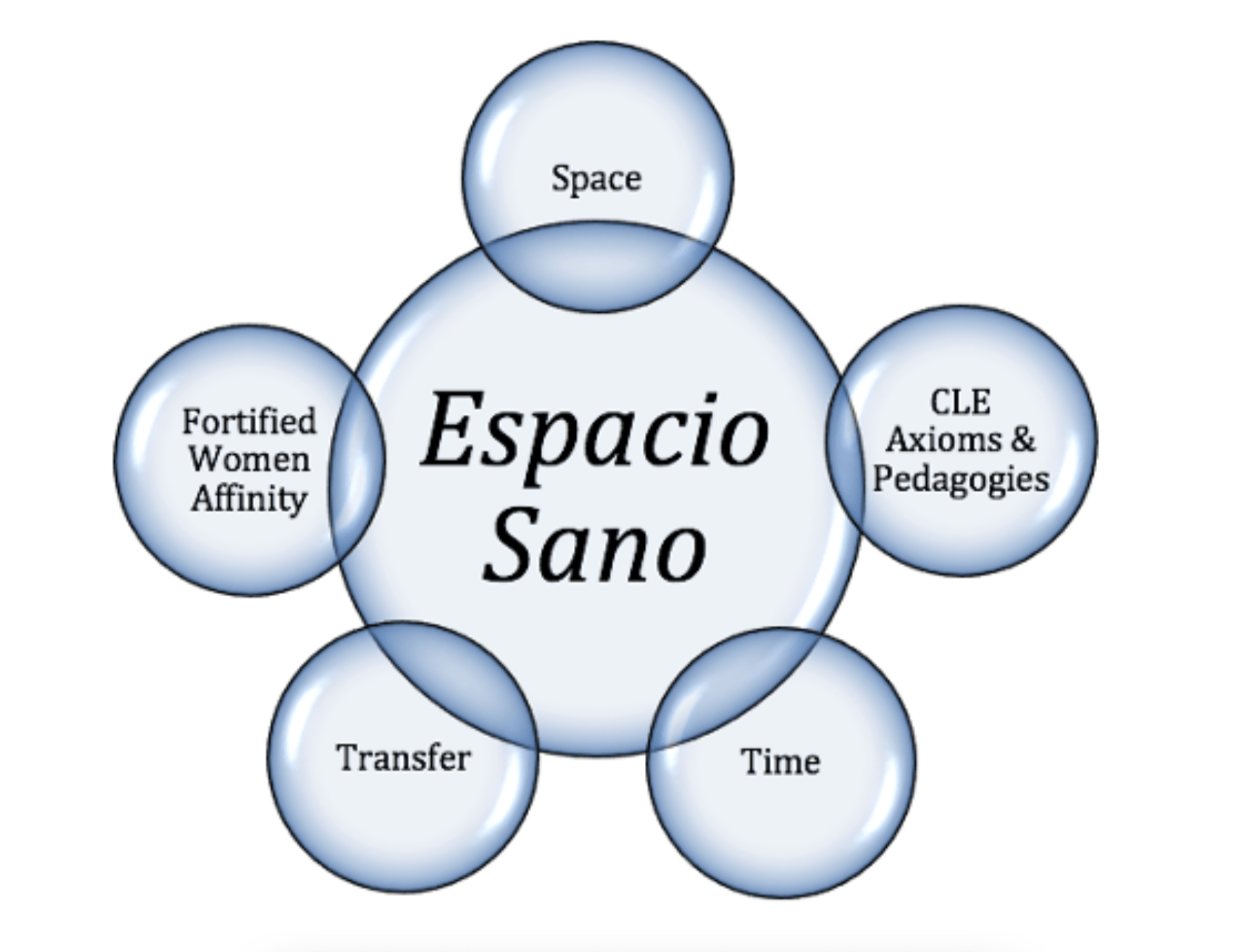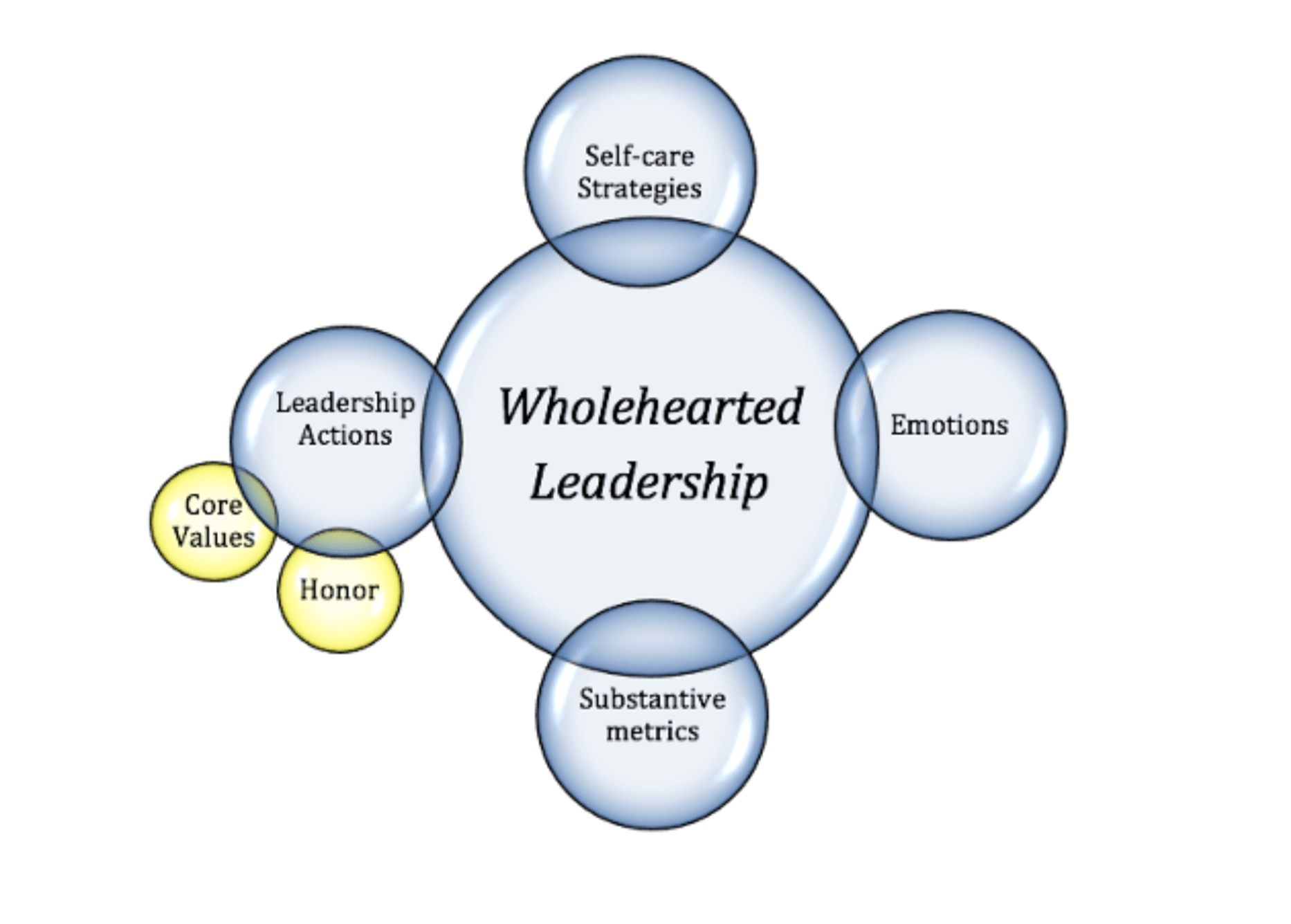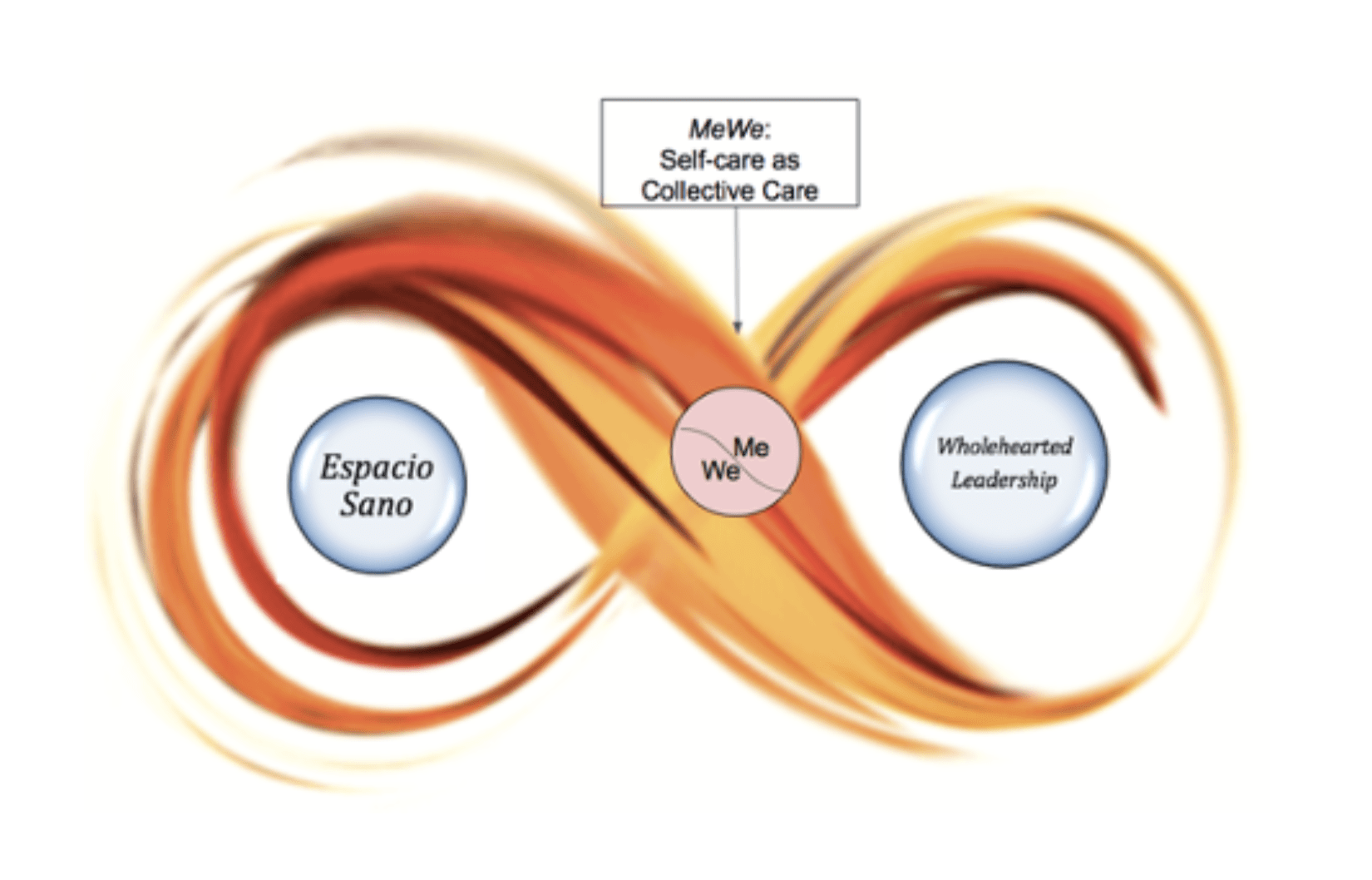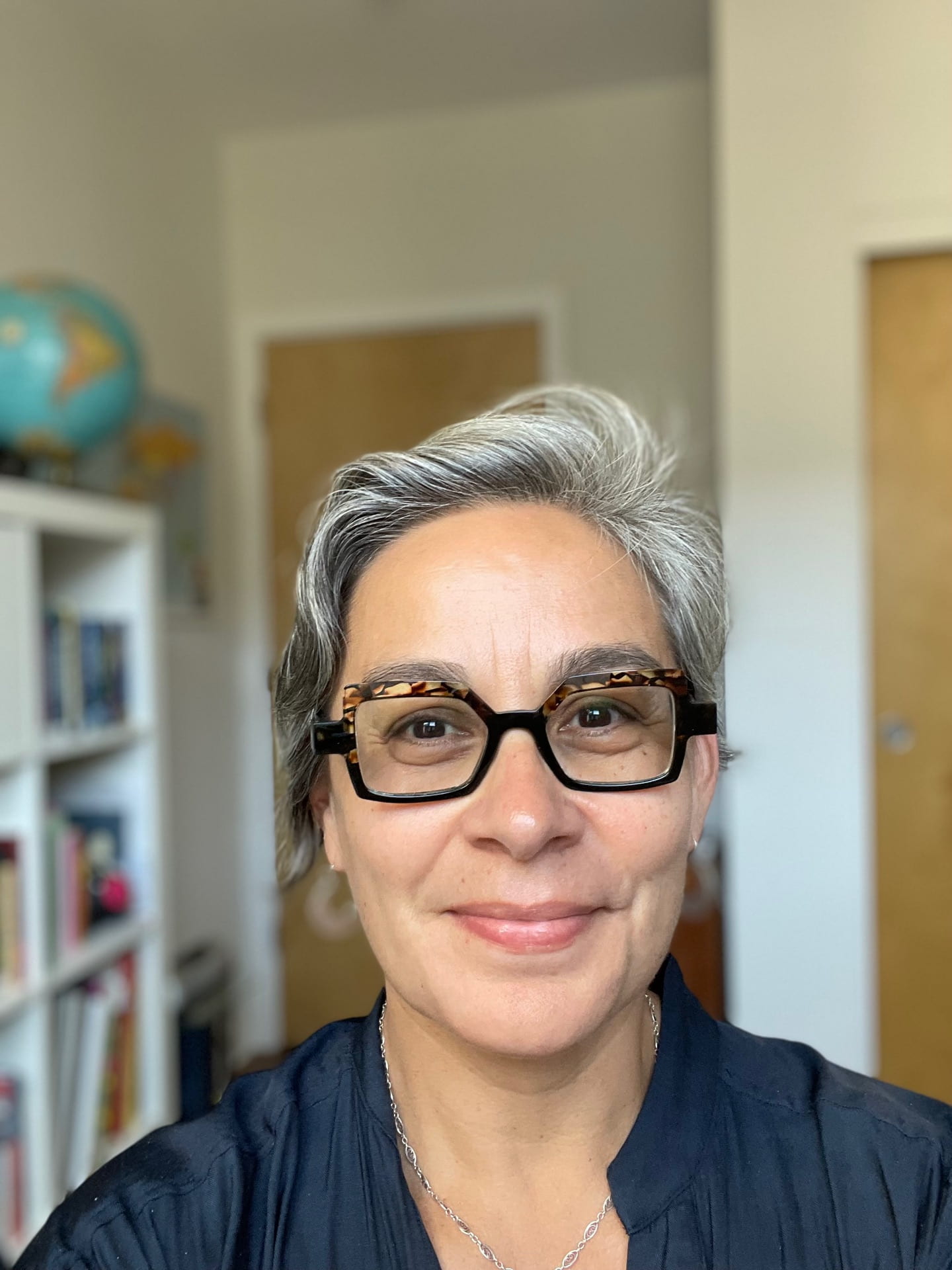 By Christina Velasco, Ed.D.(Leadership coach in San Francisco Unified School District)
By Christina Velasco, Ed.D.(Leadership coach in San Francisco Unified School District)
Systemic oppression sucks that creativity and imagination right out of us unless we intentionally pause and garner the imagination, hope, and resiliency to engage in social justice leadership. Given the often-unresponsive systemic and political context within which school leaders must work, the need to support educational leaders in ways that fill the individual and collective soul is even more essential. We need to continue to imagine and hope for a new way of being, leading, and sustaining educators.
I have been an educator in San Francisco for more than twenty years. After my tenth year as a school principal, I took a year’s sabbatical to intentionally pause, reflect, research, and re-imagine what school leadership could be if we integrated self-care practices. I began the doctoral program while simultaneously starting a year-long sabbatical. Through the encouragement and support of my advisor, Lynda Tredway, we re-imagined how I could engage in action research while on a sabbatical. The doctoral program at East Carolina University modeled creativity and used Community Learning Exchange axioms, dynamic mindfulness, how to integrate art, and a focus on equity that I learned and shared with the Equity Centered-Professional Learning Community (EC-PLC) members and colleagues. The sabbatical provided the space for me to reflect and heal; to deliberately give to myself so that I could re-engage, re-imagine, and give back to the profession.
At the beginning of this journey, I found it to be problematic to let go and not feel guilty, I wrote:
It is difficult for me to adjust to not being at a school site or working. I am so accustomed to having everything on my calendar and full days with back-to-back meetings… I am beginning to slowly get into a rhythm and cadence. I am releasing the guilt I feel for not being at my former school. I will honor the balance of giving myself the grace to take it easy, to enjoy a slower pace of life, to create, make things… I am learning how to balance new things now; I am creating new routines: pacing out my readings, writing papers, and thinking about the focus of practice for graduate school.
In the first few months of the sabbatical, I focused on self-care: It took me many months to unravel the complexity of how my identity is so closely tied to my leadership work.
In my role as a public-school educator and activist researcher, I partnered with four women educational leaders in the San Francisco Unified School District in the Bay Area of California using an (EC-PLC) as Co- Practitioner Researchers (CPR). The operating theory of action was: If we engage in iterative cycles of inquiry in an EC-PLC to increase educational leaders’ individual and collective abilities to better manage stress by deepening relationships, then school leaders can fortify and sustain their work of equity, excellence, and social justice leadership. We relied on the following to accomplish our goal: co-creating and using Espacio Sano (sane space), engaging in testimonios (storytelling), and learning and practicing self-care strategies.
The members of the EC-PLC collaborated and re-imagined with me to increase our individual and collective abilities to use self-care strategies. Through this process, we created an Espacio Sano, a distinct professional learning space, in which and through which we practiced self-care strategies and deepened relationships. The EC-PLC of two school principals, an assistant superintendent, a leadership coach, and me, who had diverse roles and experiences in our school district, provided multiple perspectives and knowledge for the project. We learned, in addition to the typical support, leaders need other support to deal with work-related stress so they can sustain their stamina and well-being to do the work of equity and excellence in schools.
Furthermore, we learned that women educational leaders are safe and brave enough to be vulnerable and fierce in an Espacio Sano. In this space, we emerged as wholehearted leaders embracing our integral selves in leading schools; we can lead with both intellect and heart, the brainheart. We learned wholehearted leaders attended to their mental, intellectual, spiritual, and physical self-care. Wholehearted leaders remained connected with friends and networks. Wholehearted leaders understood and talked about emotions and provided spaces for others to do so because it supported collective resilience. Wholehearted leaders used alternative measures to gauge what is really going on in our schools. Wholehearted leaders practice self-care as collective care. When space and time are established and crafted by those who inhabit them, transformation happens.
When Espacio Sano and wholehearted leadership work in conjunction with each other they create a nexus. The nexus emboldens Self-care as Collective Care, the MeWe. This nexus encompasses the African philosophy of Ubuntu: I am because you are. “Ubuntu is a Zulu word which serves as the spiritual foundation of African societies…Ubuntu articulates basic respect and compassion for others” (Matshe, 2013, p. 18). It is in this spirit, the MeWe represents the combination of holding space for oneself and others. This space provides fodder for liberating education and social justice leadership. It is a symbiotic relationship: Espacio Sano is created because of wholehearted leaders, and we have wholehearted leaders because we create Espacio Sano.
The MeWe: Self-care as Collective Care debunks the either/or thinking of the professional or the personal, the brain or the heart, the warrior or the healer, the outer work or the inner work, the canonical or the non-canonical of white supremacy culture (Jones & Okun, 2016), and embraces both/and (Eubanks et al., 1997). Transformation happens in the revolution of the Me turned upside down to form We. The intersection of the Me with We becomes a platform “where practitioners could think and develop, individually and collectively, and where the process of change could be nurtured, drawing on, but not constrained and dominated by, the influence of current practice or the requirements of policy to initiate ‘solutions’ or solve ‘problems’” (Hulme et al., 2009, p. 541). In the MeWe: Self-care as Collective Care, it is both/and. It is both professional and personal, brainheart, the outer and inner work, the canonical and non-canonical integrated. The MeWe: Self-care as Collective Care is as much about developing knowledge and claiming power as it is about embracing our vulnerability and uncertainty individually and collectively. In Western societies, too often dichotomies exist between me and we, the individual and collective. Espacio Sano and wholehearted leadership approach learning with non-Western features where the fine lines between individual and collective blend. I experienced and witnessed the power of the We in this work of self-care as collective care.
EC-PLC principal Claudia Valle created routines and policies that include self-care as an essential element of teaching and learning for adults and students. She created structures to provide dedicated time to self-care in weekly work schedules and protocols to integrate self-care practices in the workplace. District leaders like EC-PLC assistant superintendent Grant understood and promulgated an ethic of care by integrating a monthly wellness hour at each of the principal meetings. These practices sustain the members of the community and build the critical resilience the MeWe: Self-care as Collective Care.
Collectively, we enacted a radical self-care that is liberating and fundamental.
I take care of Me so that We can better take care of others. In the MeWe: Self-care as Collective Care leaders embrace integration, both the canonical and non-canonical ways of knowing and being. Collectively, we enacted a radical self-care that is liberating and fundamental. The MeWe: Self-care as Collective Care framework is reconceptualized as a promising third space for personal and professional learning.
As a personal journey and a journey with others, the collective findings reaffirmed the importance of interconnectedness and the integration of both the ways of knowing and ways of doing, the MeWe: Self-care as Collective Care. When we honor and take care of ourselves, we are better equipped to engage with others, strengthen each other, keep our imaginations vibrant, and bring our best selves a la lucha para la justicia.
References
Eubanks, E., Parish, R., & Smith, D. (1997). Changing the discourse in schools. In P. M. Hall (Ed.), Race, ethnicity, and multiculturalism. Garland.
Hulme, R., Cracknell, D., & Owens, A. (2009). Learning in third spaces developing transprofessional understanding through practitioner enquiry. Educational Action Research, 17(4), 537-550.
Jones, K., & Okun, T. (2016). Dismantling racism: A workbook for social change groups. Resource Generation. https://resourcegeneration.org/wp-content/uploads/2018/01/2016- dRworks-workbook.pdf
Matshe, G. (2013, August 3). Ubuntu- a person is a person through other persons: Getrude Matshe at TEDxTeAro.
h t t p s :/ / w w w . y o u t u b e . c o m / w a t c h ? v = B z I y O t u s D x E & a b _ c h a n n e l = T E D x T a l k s
Velasco, C. (2021). Espacio Sano: How social justice educational leaders cultivate caring and sharing [Doctoral dissertation, East Carolina University]. ProQuest Dissertations Publishing.
